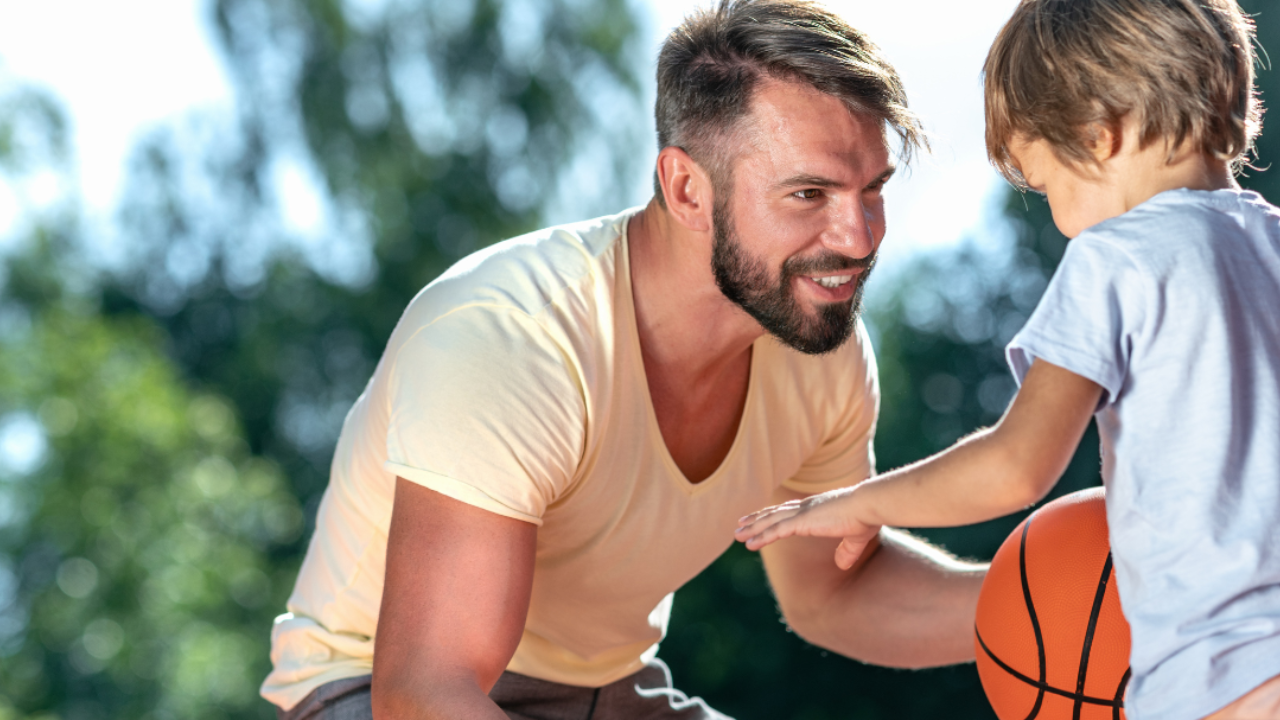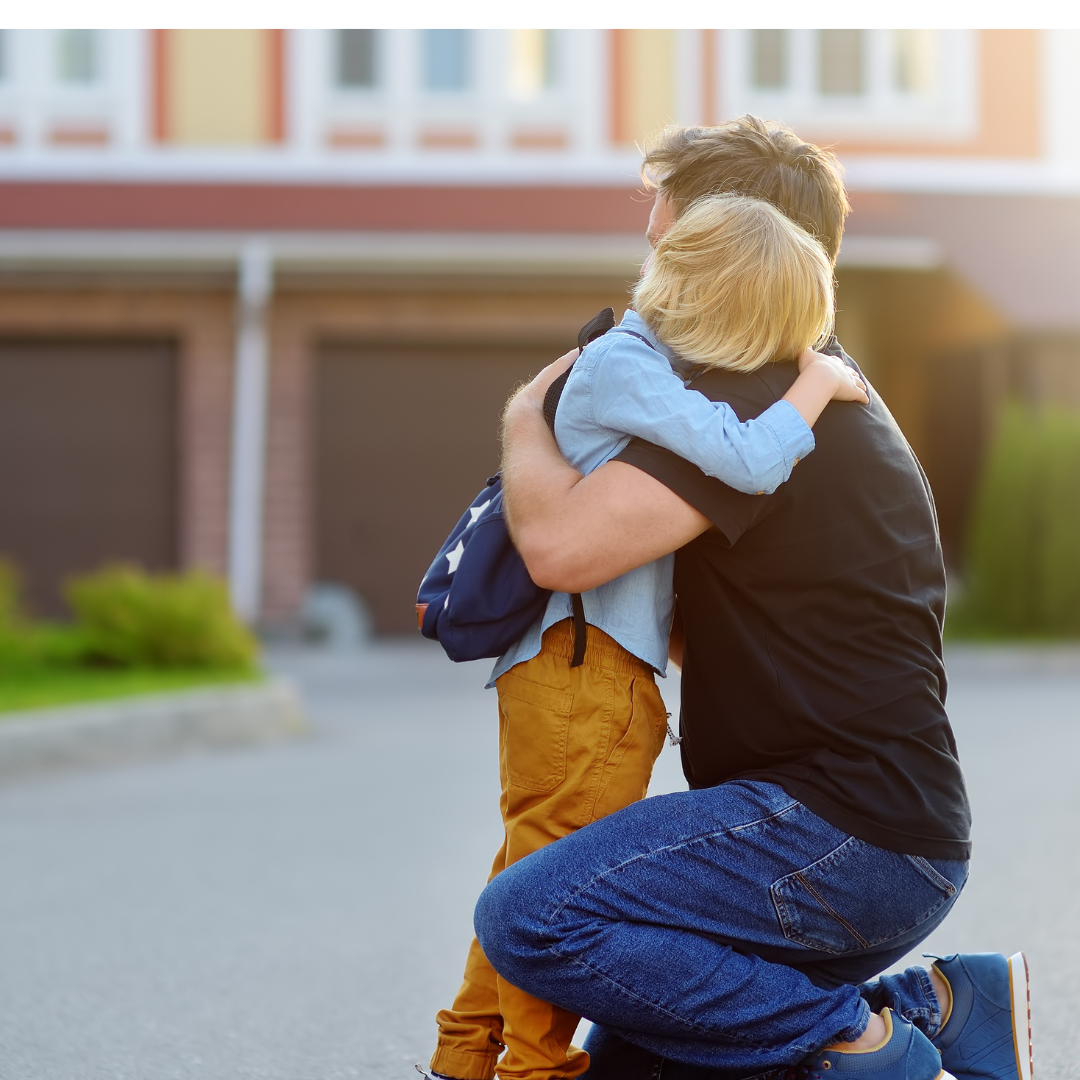Getting kids to cooperate – the answer lies in a fist bump

How we can learn about parenting from watching the NBA
When working with parents around the challenges they are experiencing with their children there is one place that no matter what the problem I will always recommend we start.....
Connection.
Our children are wired to seek out relationship with 1 – 2 primary caregivers (usually their parents), and it doesn’t matter whether the issue in daily life is fussy eating, bedtime battles, screen rage, meltdowns or sibling rivalry… we won’t get anywhere if we don’t start with meeting this need for connection.
This drive for physical connection is so powerful that from the second our newborns arrive earthside they are seeking out the faces and the connection of their primary caregivers more than any other face or shape. A sign of just how vital a sense of ‘belonging’ is for babies and children, right from their very first breath.
I came across the most incredible study this week that looked at what factors could predict success in the NBA. Kraus and Keltner looked at Tactile Communication, Cooperation, and Performance across 2008/09 NBA season.
For a whole season, researchers looked at what were the predictors of success in terms of individual players and the teams across the NBA. Controlling for all the variables there was one unequivocal and indisputable factor that when present early in the season it could predict success……
It wasn’t the coach
or the number of hours spent in the gym
It was touch.
More specifically, physical connection, especially done celebration. The more players physically celebrated each other in high fives, fist bumps and hugs – the greater their success as individuals and a team.
“Consistent with hypotheses, early season touch predicted greater performance for individuals as well as teams later in the season. Additional analyses confirmed that touch predicted improved performance even after accounting for player status, preseason expectations, and early season performance.”
This doesn’t surprise me, and yet it also does.
I think it’s astounding and yet it also makes SO MUCH SENSE.
Children are as dependent on this physical connection as they are on food and shelter, simply because we are as a species wired for connection and our kids at their deepest cellular level know that without our love, they simply can’t survive. As a result kids have almost never-ending need for connection with us, because it answers the most important question they ask us: ‘Am I loved?’

They need us to show them they are loved physically because that’s their love language. As babies they are reliant on touch because they are a sensory beings and they don’t have words. We know that skin to skin with their parents has the most incredible physical, emotional and health benefits for both baby and parents, and that as we hold, soothe and touch our babies they thrive.
As kids grow and they begin talk and process information differently, it’s easy to forget they are still reliant on this physical touch in order to ‘feel’ our love because the concept of a parent’s love is too abstract to understand yet. Simply telling a 2, 3 or 15 year old that ‘they are loved’ isn’t enough. We need to physically show them.
I first learned about the importance of physical connection though my friend and mentor Maggie Dent. She has spoken for years about the importance of these micro moments of connection done though fist pumps, high fives, kisses, surprise cuddles. When I started increasing these moments with my boys I was blown away.
Here is what I now know about the power of physical connection and its impact for kids:
- Simply increasing the number of warm moments of physical connection, fist pumps, high fives, hugs, and kisses can drastically increase co-operation in your home.
- Just 10 minutes spent physically playing with young children can regulate emotions, the body and have your child feeling really ‘settled’ bonus points for rough and tumble play with also has a long list of benefits for social and emotional development and helps kids regulate their bodies.
- Surprising your child with a show of delight - a hug or kiss, or another display of physical affection – for no reason is one of the best ways to improve self-esteem. Kids who feel delighted in, feel delightful, and kids who feel delightful feel good about themselves.
- Every once in a while, - holding a hug until your child ends it, can full an emotional cup right to the brim and help regulate their emotions so fully that their whole face can soften… even on the hardest of days.
Here is what I see happen for my boys on the daily. I notice one of them, for whatever reason needing connection… I might say their name and give a physical ‘thumbs up’ or high five them. Or I grab them in a surprise attack of cuddles or kisses….. and then watch them literally melt.
If you watch your child after one of these moments of physical connection what you can often see is the softening of their faces, shoulders relaxing, a little smile…..safe in the knowledge that ‘my parents love me’. Things always, always go better following a moment of connection.
If you want a child to stop playing to come to dinner and you connect physically by touching them on the shoulder BEFORE you direct, they are so much more likely listen and cooperate.
If you make sure your child gets extra cuddles or physical connection 10 minutes before a transition like bedtime or school drop off there are often less tears because you have filled up that connection cup enough to have the separation go better.
A high five can be so much more powerful than the words ‘good job’ for a child who has achieved something they have been working on… they get to ‘feel’ the celebration and own it free from the complexities of praise based on outcomes.

I love this study. I love that it confirms what I so strongly believe about what our kids need from us and what I love most is that it has shown that not only does connection feel great and pave the way for a fantastic relationship between our children and us…. But it increases success. For success to happen in the NBA or in our homes there must be an increase in cooperation, teamwork, flexibility, resilience under pressure. All things we are so hoping for our families and our children long term.
So next time you hit a hurdle in your parenting. A child who is refusing to listen, siblings who seem intent on killing each other, meltdowns that are dominating every happy or peaceful moment….. and you think “I don’t know what to do or where to start” I would love you to think this….. “this is hard, I am not sure what’s needed here…. But I know where to start – connection.”
Starting with connection won’t guarantee a home free of struggle. It doesn’t mean that the kids will brush their teeth and go to bed without complaints or stop fighting with their siblings… because that’s not what they are designed to do. That’s all part of normal development.
But it increases the chances of children being able to cooperate when a limit is set, and it almost certainly has moments going better than they would without connection.
And you know what the best bit is?
It seriously just feels so much better – and to me that signifies the ultimate success.


